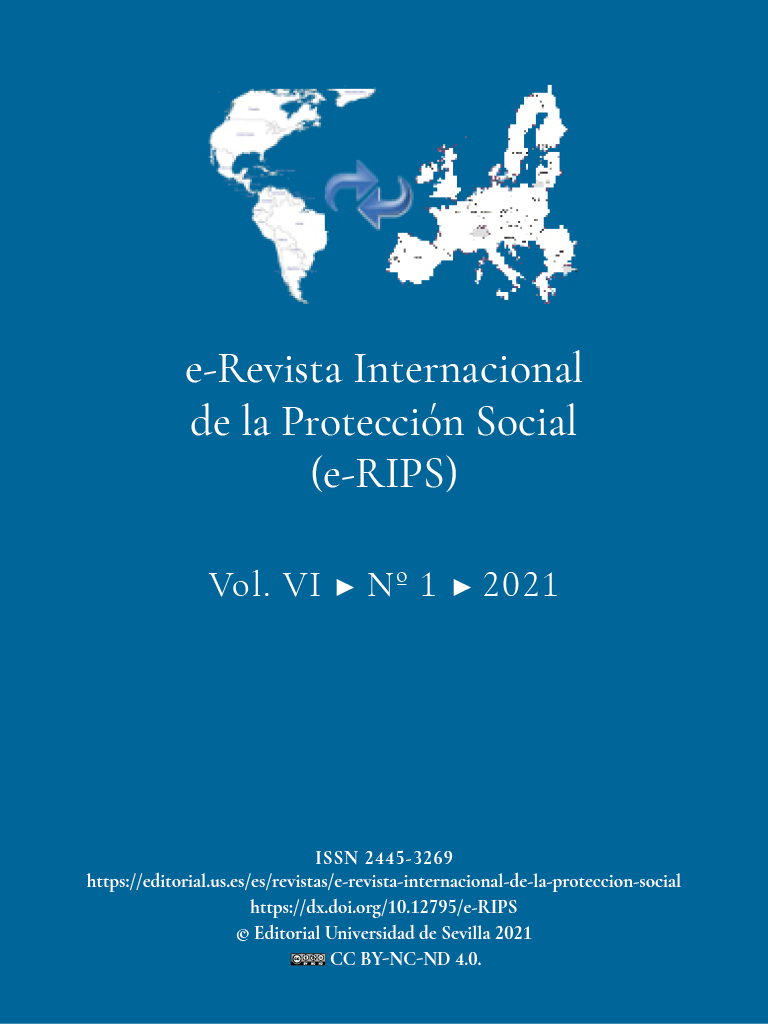LUISA CARNÉS AND ITS DEFENCE OF WOMEN’S LABOUR RIGHTS
DOI:
https://doi.org/10.12795/e-RIPS.2021.i01.23Keywords:
Social narrative, Women, Emigrants, Labor rightsAbstract
The novelist Luisa Carnés for her defense of labor rights, especially women, fits into the prewar social narrative. Her work shows the harsh working conditions of workers throughout the 20th century in Spain and in Mexican exile. Her novels and stories allow us to delve into the existence of insufficient legislation to defend workers against business abuses.
Downloads
References
Plaza Plaza, A. (ed.): El eslabón perdido, Renacimiento, Sevilla, 2002.
Carnés, L.: Tea Rooms. Hoja de Lata, Gijón, 2016.
Carnés, L.: El eslabón perdido, Renacimiento, 2002.
Carnés, L.: Trece Cuentos, Hoja de Lata, Gijón, 2017.
Carnés, L.: De Barcelona a la Bretaña Francesa. Memorias, Renacimiento, Sevilla, 2016.
Published
How to Cite
Issue
Section
License
Authors being published in this journal agree to the following terms:
- Authors retain their copyright and they will guarantee to the journal the right of first publication of their work, which will be simultaneously subject to license recognition by Attribution-NonCommercial-ShareAlike (CC BY-NC-SA 4.0 DEED)
that allows others to share such work provided that the author’s name and his first publication in the e-International Review on Social Protection is stated. - Authors may take other non-exclusive distribution license agreements version of the published work (e.g. deposit in an institutional digital file or publication in a monographic volume) provided that the initial publication in this journal is stated.
- Authors are allowed and encouraged to disseminate their work via the Internet (e.g. in institutional digital files or on their website) prior to and during the submission process, which can lead to interesting exchanges and to increase citation of the published work.











